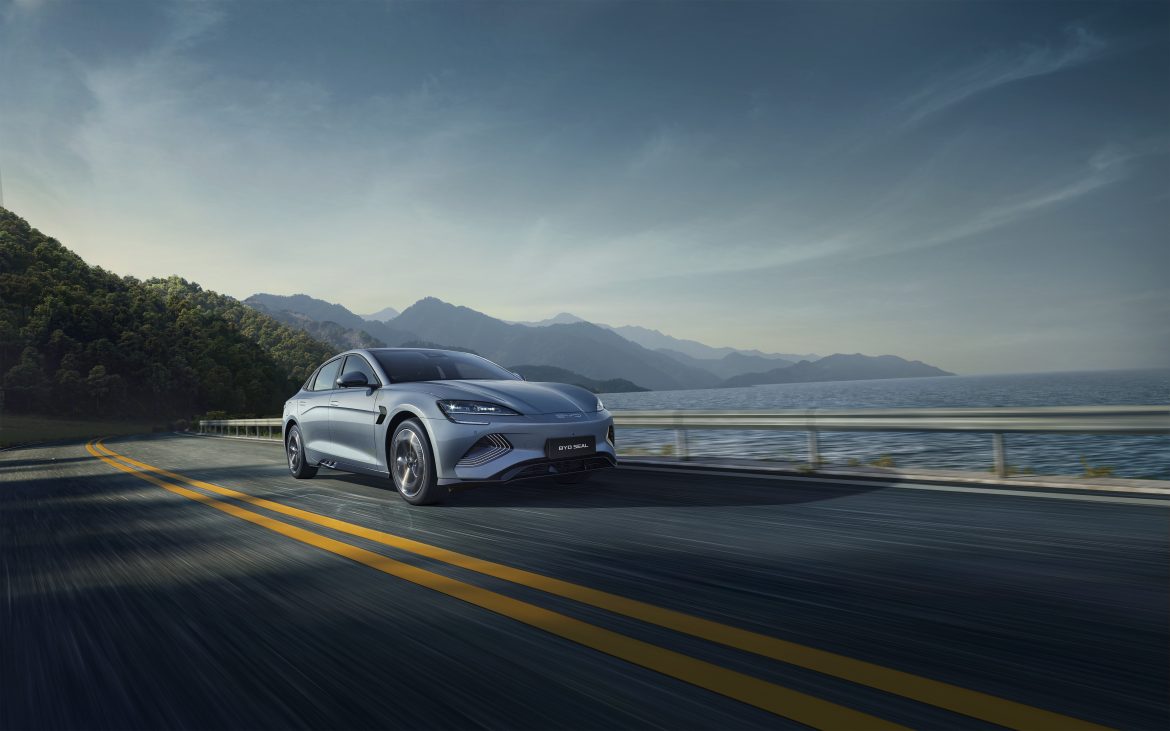The Chinese automotive invasion of the United States is on the horizon, and a surprising demographic appears eager to embrace the newcomers: Generation Z and Millennial car shoppers. According to a recent survey by automotive research firm AutoPacific, a striking 76% of Americans under 40 said they would consider purchasing a vehicle from a Chinese brand like BYD, Nio or Geely. This youthful openness contrasts sharply with older generations, as only 26% of those 60 and up expressed interest in going Chinese for their next car or truck.
The findings reveal a stark age divide over Chinese automotive brands, which have yet to officially enter the lucrative U.S. market but are expected to begin selling vehicles here in the coming years. Despite ample Sinophobia over potential privacy and national security risks, AutoPacific’s study makes clear that budget-minded younger buyers are relatively unfazed by such concerns when evaluating the tempting electric and gasoline vehicle lineups being developed in China.
“A surprising number of American consumers are familiar with Chinese car brands even though none are sold here currently. This is especially true among savvy Millennials and Gen Z, who would be the most likely to consider acquiring a vehicle from a Chinese brand,” said Ed Kim, President and Chief Analyst at AutoPacific. “Privacy concerns are likely to eventually subside given that most connected devices we use daily are manufactured in China.”
Indeed, the survey of nearly 800 U.S. vehicle owners found substantial privacy worries across all age groups if Chinese automakers enter the American market, with 44% “very concerned” and another 34% “somewhat concerned.” Even so, younger respondents seem undeterred, with 73% under 40 citing privacy qualms yet still expressing openness to Chinese brands.
National security fears over Chinese automotive espionage were similarly prevalent regardless of age. However, one potential game-changer could be where Chinese vehicles are manufactured. While an incoming 100% tariff on Chinese-built vehicles will make importation prohibitively expensive, automakers like BYD are already gearing up to build U.S. and Mexican assembly plants to sidestep such levies. The survey found that 39% of those under 40 said U.S. assembly would increase their consideration of a Chinese brand. Likewise, nearly three-quarters (73%) of younger buyers said they’d ponder purchasing a Chinese vehicle built in Mexico and exported tariff-free to America under current trade rules.
Much of this Millennial and Gen Z intrigue stems from Chinese automakers’ pivot to cutting-edge electric vehicle development at aggressive pricing impossible to match among legacy brands. The likes of BYD, Nio and other startups are rolling out audacious new EVs packed with innovative tech, blisteringly quick charging speeds, sleek styling and tempting features – often at price points USD 10,000 to USD 20,000 less than comparable American, Japanese or European competitors.
“It’s no secret Chinese brands are building some of the most innovative new EVs with striking technology, cutting-edge software, hyper-fast charging speeds, and fun features desired by younger buyers, and doing so at price points that significantly undercut what EVs from American, Japanese, Korean, and European brands currently sell for in the U.S. market,” said Robby DeGraff, AutoPacific’s Manager of Product and Consumer Insights. “AutoPacific research has shown a main reason many Americans are hesitant towards EVs is the purchase price, and Chinese-brand EVs could potentially offer appealing EV products that could generate excitement for EVs at much more affordable price points.”
For cash-strapped Gen Z and Millennial buyers priced out of mainstream electric cars and trucks, the budget-friendly EVs being developed in China may prove irresistible despite geopolitical tensions. Models like BYD’s Seal crossover and Nio’s upscale EVs offer futuristic cabins, vegan leatherette interiors, augmented reality displays and other cutting-edge features aimed at younger urbanites. With base prices equivalent to as little as $25,000 before incentives, such vehicles could make electrification attainable for first-time buyers.
“Younger generations of shoppers are clearly aware of the enticing products Chinese automakers are cooking up overseas,” added DeGraff. “It’s only a matter of ‘when’ they’ll be able to get their hands on them.”
Privacy and security concerns aside, the great Chinese EV onslaught may ultimately prove compelling to the TikTok generation craving buzzworthy wheels that align with their digital lifestyles and eco-conscious leanings – without draining their modest bank accounts. If heritage brands like Ford, Toyota and Volkswagen don’t move swiftly with their own affordable, youth-oriented electric lineups, an automotive revolution from an unlikely source could be looming.



